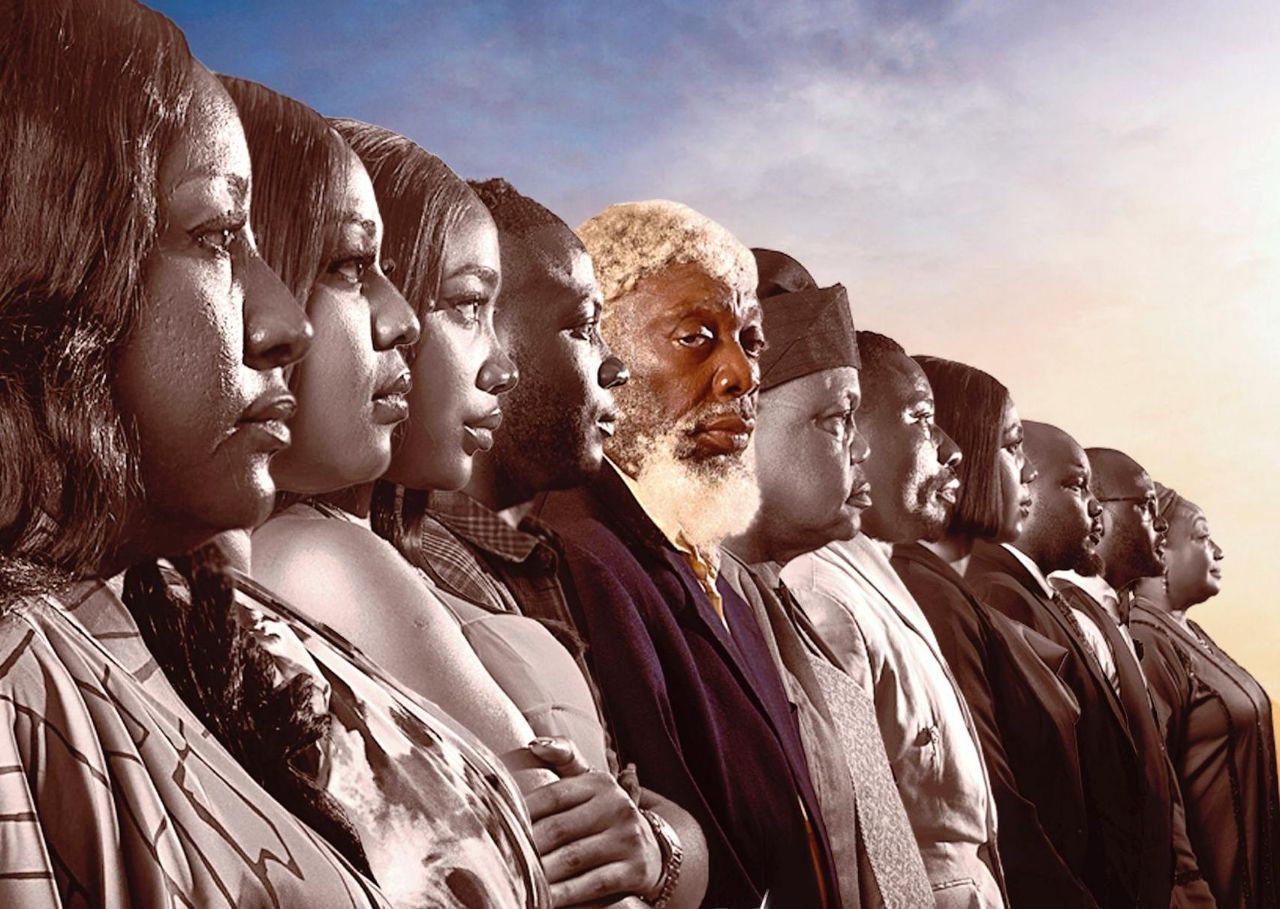BlackStar: In the Rashida Seriki-written and directed short film, nostalgia is a vehicle both literally and figuratively. The couple drive through Lagos in a vintage Mercedes Benz revisiting the past through symbolic stops like the train station, gestures such as gifting Momo a Nigerian jersey and visuals captured on the old camera Fade carries throughout the film. But like all things that hinge solely on distorted memory, that filter is often not enough to give depth.
(Click to Follow the What Kept Me Up channel on WhatsApp)

Leaving Ikorodu in 1999 follows Momo’s (Motunrayo Abiola-Oloke) last day in Lagos with her uncle Mahmoud (Tobi Bakre) and her aunty Fade (Tomi Ojo) as they drive her to the airport and clash over her need to leave the country. Their journey to the airport moves them through historical artifacts dutifully with no strong emotional core and its commentary on migration is wonky: using a time of hope in Nigeria to inspire staying back in times that are totally different. Leaving Ikorodu in 1999 never fully engages with the year in its title, the democratic transition, optimism and disillusionment, only telling us that the past exists solely in objects and surface moments.
The film is more interested in its aesthetic quality than the complex sentiments that surround migration. Towards the end of the film, Tomi Ojo (Far From Home) awkwardly delivers a confusing line saying, “migration is the same theft they’ve been doing for centuries.” The line hints at deeper commentary, possibly drawing parallels with the transatlantic slave trade, but the film never explores this further—maybe because of length—leaving that loaded phrase hanging in midair.
On a visual level, the film is often well shot—sometimes too grainy—with a signature green hue to capture the past but with no story grounding it, it almost feels like a checklist of past moments and nothing more. The filling station, the post office, the railway station are all in service to nostalgia and nothing more. This translates to the acting where Bakre (Gangs of Lagos) and Ojo don’t have a lot to bite into, so they stumble through the film delivering performances they might not even believe in. The film is bookended by Sheila Atim (The Woman King) in a throwaway expectant mother role, but at least we get to see her shed a singular tear before the film ends.
Nostalgia has been a perverse force in media these days. The lifetime of things is getting shorter and shorter and people are now nostalgic for things just five years old. A tool that should be wielded deftly and sparingly has become the sole focus of films these days and this makes for hollow emotional explorations that disappear immediately after viewing. Leaving Ikorodu had the potential to use nostalgia as a tool to explore migration, but ended up leaning fully on it.
Leaving Ikorodu in 1999 screened at the BlackStar Film Festival 2025, held July 31 – August 3.
Become a patron: To support our in-depth and critical coverage—become a Patron today!
Join the conversation: Share your thoughts in the comments section or on our social media accounts.
Track Upcoming Films: Keep track of upcoming films and TV shows on your Google calendar.
Side Musings
- The film reminded me of Aftersun with the way it set up the TV as a portal to memory. Didn’t have the same emotional effect though.
- As expected, Tobi Bakre and Tomi Ojo make a hot couple, let’s give them another film.





As an African-American who loved this film in particular, I was excited to read a review about this film coming off the high and community feels of BlackStar Film Festival but this is miserable. Film is subjective but there’s also false advertising here. I was there at the Q&A where she spoke more about the film’s themes which were far from just nostalgia. The audience greatly engaged in debate about it long after the screening. I guess there must be some personal reason for the impartiality.
Hi, You are certainly allowed to hold those opinions and feel the way it made you feel. I would not call you impartial for that.
While you do not have to, a better approach would be to engage the arguments you do not agree with. And then, a conversation and insightful exchange can be had.
I’ve just watched it in Melbourne where it won the Grand Prix. I did wonder what the reception would be from the people of Nigeria, especially people who still feel that they want to leave. For me, I loved it too, it was stunning both in picture and meaning.